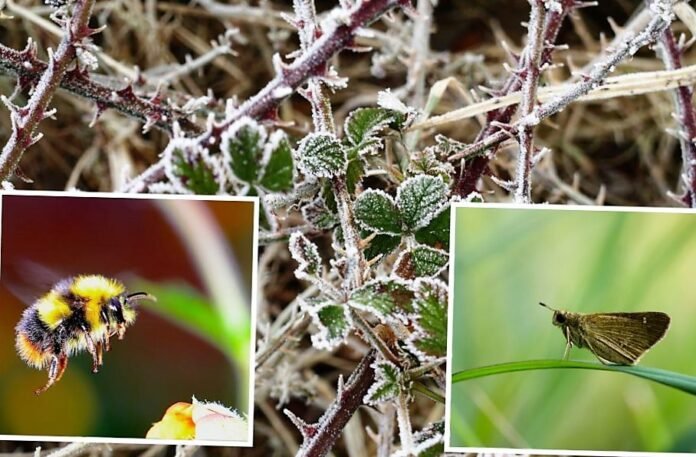A New Study by Sussex University Reveals the Importance of Moths in Maintaining Nature
A recent study conducted by researchers at Sussex University has uncovered some surprising findings about the efficiency of nocturnal pollinators, specifically moths. In the face of growing concerns over the decline of insect populations, including bees and butterflies, this research is both timely and critical. The data obtained by the researchers highlights the crucial role that moths play in maintaining nature.
Moths vs Day-Flying Pollinators: A Comparative Analysis
The researchers focused on ten different sites in the South East region during July 2021 to carry out their study. What they found was that, while 83% of insect visits to bramble flowers occurred during the day, moths made fewer visits during the short summer nights, amounting to only 15% of the visits. However, despite this, moths were able to pollinate the flowers at a much faster rate. The conclusion drawn by the researchers was that moths are more efficient pollinators than day-flying insects like bees.
Declining Moth Populations and the Role of Bramble
The study has also revealed that declining moth populations are an additional concern. The researchers suggest that encouraging the growth of brambles and other flowering scrub plants in areas such as parks, gardens, road verges and hedgerows could help support moth populations. Dr Max Anderson, one of the co-authors of the study, emphasized the importance of allowing some bramble and other flowering shrubs to grow in these areas.
The Significance of Bramble for Nocturnal Pollinators
The study also indicates the critical role that bramble, a shrub that is commonly considered as unfavourable and often cleared away, plays in supporting nocturnal pollinators. Using camera traps to monitor the numbers of insects visiting bramble flowers, the researchers were able to determine how quickly pollen was deposited at different times of day by experimentally preventing insects from visiting some flowers but not others.
The Crucial Link between Pollinators and Ecosystem Health
Both night-flying and day-flying pollinators are essential to the survival and health of natural ecosystems. Pollinators facilitate the fruiting, seed-setting and breeding of plants, which in turn provide food and habitat for a variety of other organisms. Therefore, bees and other pollinators are fundamentally linked to the health of ecosystems, and protecting them is crucial for maintaining the balance of nature.











